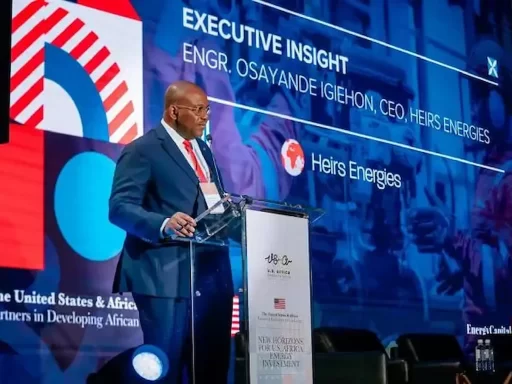Nigeria’s Non-Oil Revenues Hit Record ₦20.59 Trillion, Presidency Hails Fiscal Reforms
By NaijaEnquirer Staff
The Presidency has commended the latest revenue figures covering January to August 2025, highlighting unprecedented growth in non-oil collections. According to the Presidency, these gains are a direct outcome of ongoing reforms to strengthen compliance, digitise tax administration, and improve Nigeria’s overall fiscal position.
President Bola Tinubu referenced the positive growth trajectory in non-oil revenues while addressing a delegation of the Buhari Organisation led by Senator Tanko Al-Makura. He clarified that reports misrepresenting his remarks had taken them out of context.
From January to August 2025, total collections reached ₦20.59 trillion, a 40.5% increase from the ₦14.6 trillion recorded in the same period of 2024. The Presidency noted that this strong performance aligns with projections, placing the government firmly on track to achieve its annual non-oil revenue target.
The President also disclosed that the Federal Government has not resorted to borrowing from local banks this year, a reflection of the country’s improved fiscal stability. He noted that while dollar oil receipts remain below target due to market slumps, non-oil tax revenues are powering fiscal resilience.
Highlighting inclusive growth, Tinubu explained that increased revenues have translated into record FAAC disbursements. In July 2025, for the first time in history, monthly allocations to states and local governments crossed ₦2 trillion, giving subnational governments greater fiscal space to fund food security, infrastructure, and social services.
Despite these positive gains, the Presidency admitted that revenues still fall short of the administration’s ambitions for education, health, and infrastructure. Efforts are underway to close these gaps through sustained reforms.
Presidential spokesperson Bayo Onanuga stated: “Nigeria’s fiscal foundations are being reshaped. For the first time in decades, oil is no longer the dominant driver of government revenue. The combination of reforms, compliance, and digitisation is powering a more resilient economy. The task ahead is to ensure that these gains are felt in the lives of citizens through better schools, hospitals, roads, and jobs.”
Key Highlights
- Record Revenues: ₦20.59 trillion mobilised in eight months, the highest in recent history.
- Non-Oil Leading: ₦15.69 trillion collected, accounting for three out of every four naira, showing a fundamental shift away from oil dependence.
- Reform-Driven: Gains fuelled by digitised tax filings, Customs automation, and stronger compliance.
- Customs Surpasses Target: ₦3.68 trillion collected in H1, already 56% of full-year goal.
- FAAC Milestone: ₦2 trillion shared in July for the first time, expanding states’ fiscal capacity.
- On Track: Collections remain ahead of expectations, with final validation to come from the Budget Office at year-end.
The Presidency emphasised that rising revenues, a broader tax base, and fiscal reforms are working. The priority, it said, is to translate these numbers into tangible benefits by putting food on the table, creating jobs, and investing in schools, hospitals, and infrastructure.






